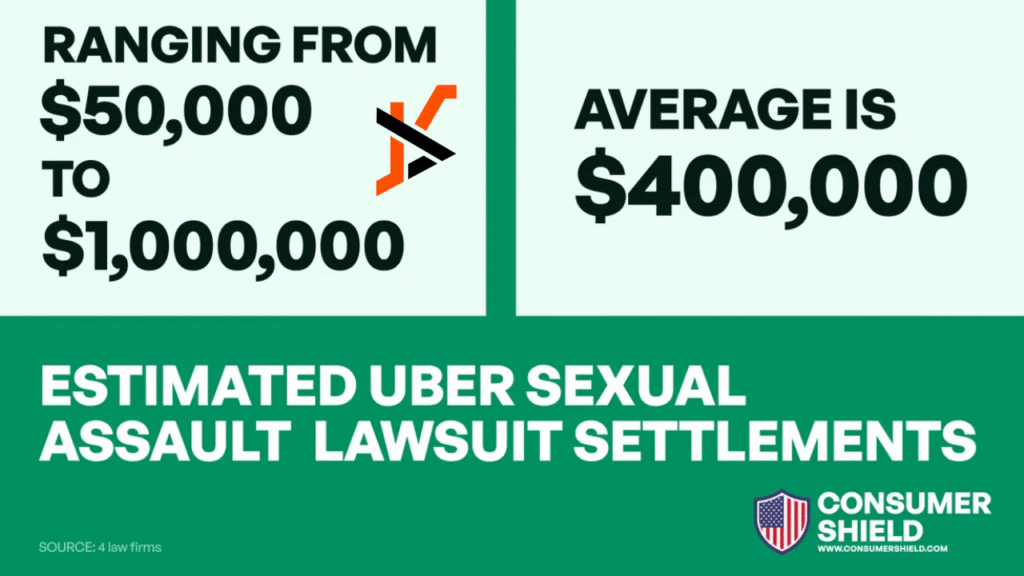In recent years, lawsuits against rideshare companies have brought attention to the issue of sexual abuse involving drivers. Survivors who step forward often face overwhelming trauma and legal challenges. One of the most pressing questions that arises in these cases is the potential settlement amount. From a lawyer’s perspective, settlements are not only about financial compensation but also about justice, accountability, and closure for survivors.
Settlement amounts in Uber sexual abuse cases vary significantly depending on the circumstances. Factors such as the severity of harm, the strength of the evidence, and the degree of negligence on the company’s part all play critical roles. For attorneys, the process begins by carefully assessing the survivor’s damages. This includes tangible costs like medical treatment, therapy, and lost wages, as well as intangible damages such as emotional suffering and long-term psychological impact. In some cases, settlements reaching millions, especially when the harm is severe and liability is clear. Quantifying these elements is essential when determining a fair settlement value.
A key aspect of legal strategy involves proving corporate negligence. Rideshare companies have a duty to protect their passengers, which includes screening drivers and responding to safety complaints. If a lawyer can demonstrate that the company failed to act on red flags or ignored prior incidents involving a driver, this significantly strengthens the survivor’s case. The stronger the evidence of negligence, the higher the potential settlement.
Negotiating with corporations of this size requires skill and persistence. These companies typically have powerful defense teams whose priority is to minimize liability. Without legal representation, survivors may be pressured into accepting settlements that fall short of covering their losses. Attorneys act as advocates, pushing back against low offers and leveraging evidence to secure compensation that truly reflects the harm endured. For lawyers, the goal is not just to achieve a settlement but to ensure it delivers justice and financial security to the survivor.
The negotiation process often involves calculating both compensatory and, in some cases, punitive damages. Compensatory damages cover actual losses such as medical expenses, therapy costs, and lost income. Punitive damages, however, are designed to punish particularly reckless or negligent conduct by the company and to deter similar failures in the future. Attorneys evaluate whether the facts of a case warrant pursuing punitive damages, as these can significantly increase settlement amounts.
Another consideration is confidentiality. Companies often push for non-disclosure agreements as part of a settlement. While these agreements can help survivors secure compensation more quickly, they may also prevent details of negligence from becoming public. Lawyers carefully weigh these terms with their clients, ensuring that survivors understand both the benefits and limitations of confidential settlements. For some, the priority is financial recovery; for others, it is about pushing for transparency and corporate reform.
From a lawyer’s perspective, settlements are often preferable to trials because they avoid the emotional toll and unpredictability of a courtroom battle. However, attorneys must always be prepared to take a case to trial if negotiations stall. This willingness to pursue litigation often strengthens the survivor’s bargaining position, as companies may be more inclined to settle fairly rather than risk a costly and public verdict.
For survivors, understanding the potential range of settlement amounts provides some clarity in a confusing and overwhelming time. While there is no universal figure, settlements can range from moderate amounts covering medical and therapy expenses to multimillion-dollar agreements when severe harm and corporate negligence are proven. Each case is unique, and the outcome depends heavily on the lawyer’s ability to build a compelling case and advocate effectively.
Beyond compensation, these settlements carry broader significance. They highlight systemic safety failures within the rideshare industry and push companies to adopt stronger protections for passengers. Attorneys often emphasize that securing meaningful settlements is not only about helping one survivor heal but also about holding corporations accountable to prevent future harm.
Ultimately, pursuing an Uber sexual abuse lawsuit is a deeply personal and difficult decision. Survivors deserve legal advocates who can guide them through the process, fight for their rights, and ensure that any settlement truly reflects their suffering and courage. From a lawyer’s perspective, achieving justice through fair settlements is not only possible but necessary in order to bring accountability to one of the most pressing safety issues of our time.

